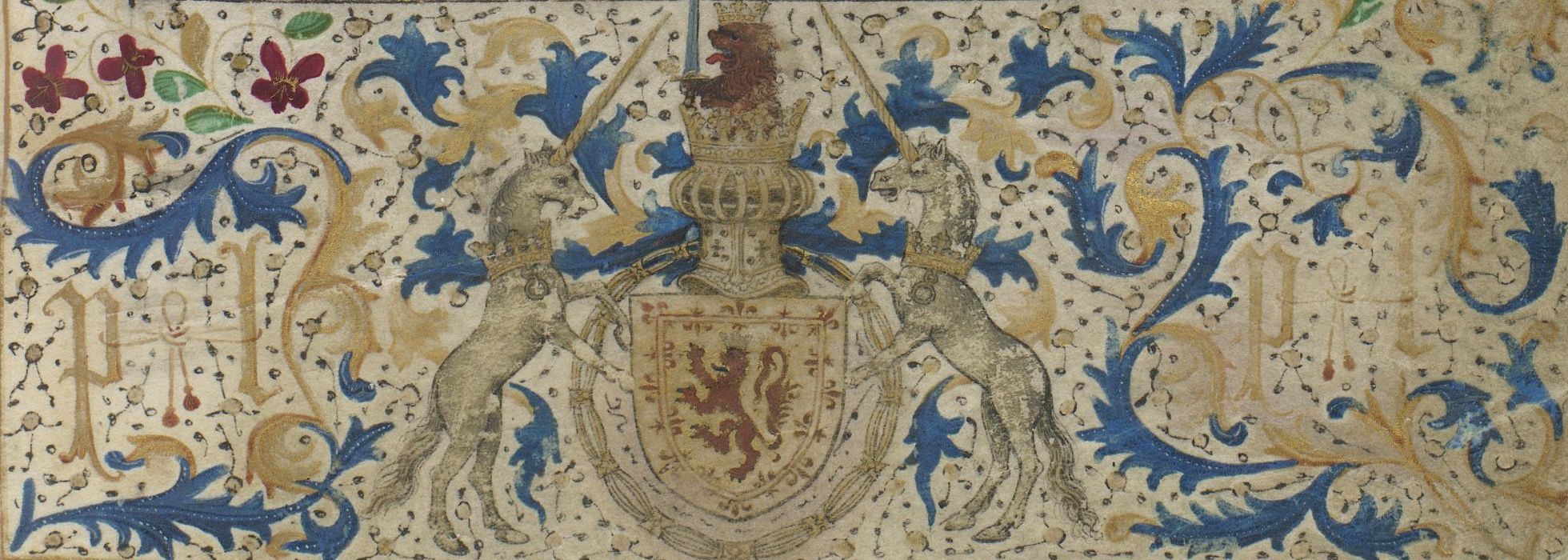Resources to help you find and read literature written in Scots before 1700
TEXTS & SOURCES
Where to find Older Scots texts online, from modern editions to original manuscripts and prints.
SCHOOLS
The ‘Older Scots for Modern Scots’ initiative to bring Older Scots literature to the classroom.
“. . . mak it braid and plane, Kepand na sudron bot our awyn langage, And spekis as I lernyt quhen I was page”
Gavin Douglas
What is Older Scots?
The cousin to standard English that we now call ‘Scots’ is descended from an Anglian variety of Old English spoken in the kingdom of Northumbria, which at its greatest extent (in the eighth century) reached from the Humber in the south right up to Lothian and the Firth of Forth in the north, including what is now the Scottish Borders, Dumfriesshire and Lothian. Throughout the middle ages, the speakers of this language simply called it ‘Inglis’ (a common northern spelling of the word ‘English’, used equally for varieties spoken in England).
Older Scots, or Middle Scots?
This website uses the uncontroversial term ‘Older Scots’ for the whole period up to ca. 1700, as do current authoritative reference works such as the Dictionaries of the Scots Language or Jeremy Smith’s Older Scots: A Linguistic Reader. Although Scots evolved and changed over the centuries before 1700, the umbrella term ‘Older Scots’ for the whole period has the huge advantage of avoiding the confusion caused by narrower labels such as ‘Middle Scots’, which seems to equate to ‘Middle English’ but in fact maps onto a rather different period.
‘… as for thame that hes written of late [about poetry], there hes never ane of thame written in our language. For albeit sindrie hes written of it in English, quhilk is lykest to our language, yit we differ from thame in sindrie reulis of poesie, as ye will find be experience.’
James VI

